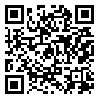Volume 17, Issue 68 (1-2019)
QJCR 2019, 17(68): 192-210 |
Back to browse issues page
Download citation:
BibTeX | RIS | EndNote | Medlars | ProCite | Reference Manager | RefWorks
Send citation to:



BibTeX | RIS | EndNote | Medlars | ProCite | Reference Manager | RefWorks
Send citation to:
karimi M. Investigating the Relationship between the Quality of Parent-Child Interaction and Critical Thinking disposition with Mental Health Components among Adolescent Girls. QJCR 2019; 17 (68) :192-210
URL: http://irancounseling.ir/journal/article-1-882-en.html
URL: http://irancounseling.ir/journal/article-1-882-en.html
Abstract: (10112 Views)
The purpose of this study was to investigate the relationship between the quality of parent-child interaction and critical thinking disposition with mental health components among adolescent girls.For this purpose, 319 girls from second grade of high school students in Yazd city were selected randomly in a multi-stage cluster sampling method. The instruments used in the research included the Parent-Child Relationship Questionnaire (PCRS), the Ricketts Critical Thinking Disposition Inventory (CTDI) and General Health Questionnaire (GHQ-28).For data analysis , Pearson correlation and regression analysis were used. The results of this study showed that there is a positive and significant relationship between the quality of parent-child interaction with mental health and critical thinking patterns of adolescent girls. There is also a positive and significant relationship between the tendency to critical thinking and mental health. The results of regression analysis showed that quality of communication with father significantly predicted mental health and tendency to critical thinking in female adolescents.
Type of Study: Research |
Received: 2018/06/12 | Accepted: 2019/04/15 | Published: 2019/04/15
Received: 2018/06/12 | Accepted: 2019/04/15 | Published: 2019/04/15
Send email to the article author
| Rights and permissions | |
 |
This work is licensed under a Creative Commons Attribution-NonCommercial 4.0 International License. |




